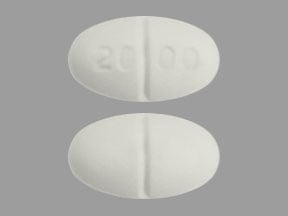
Penicillamine Coupons & Savings Card – Discount Prices from $1185.20
Generic for: Cuprimine, Depen titratabs
Penicillamine, available as Depen or Cuprimine, is a medication prescribed for the treatment of Wilson's disease, cystinuria, and severe rheumatoid arthritis (RA), particularly when other treatments have not been effective. As a chelating agent, penicillamine binds to heavy metals in the body, facilitating their elimination. For rheumatoid arthritis, it acts as a disease-modifying antirheumatic drug (DMARD), reducing joint pain, tenderness, and swelling. In Wilson's disease, penicillamine helps decrease copper levels, improving liver function and alleviating neurological and mood issues. For cystinuria, it lowers cystine levels in urine, reducing the risk of kidney stones. Penicillamine is generally taken on an empty stomach, and it is essential to follow specific instructions regarding meal timing and other medications. While effective, it can cause side effects like upset stomach and taste changes, so regular monitoring by a healthcare provider is recommended.
Our coupons are free to use. Before paying, show the pharmacist your Penicillamine savings card to get your free discount. Use our filters below to edit the prescription box to match your needs. The Penicillamine prices will update based on your prescription needs. Above our Penicillamine coupons, you can change your location to see pharmacy prices and costs in other areas. We're here to help you buy Penicillamine at the lowest price with our prescription discount card.
My prescription
Edit
250MG, Penicillamine (100 Tablets)
Select pharmacy

CVS
$5480.61
COUPON PRICE
Albertsons
$1185.20
COUPON PRICE
Walgreens
$1451.50
COUPON PRICE
Walmart
$5372.07
COUPON PRICEPenicillamine savings card
Show this card to your pharmacist
Albertsons
$1185.20
BIN
ID
PCN
GRP
019876
LH7536BED3
CHIPPO
LHX
Powered by
Penicillamine, available as Depen or Cuprimine, is a medication prescribed for the treatment of Wilson's disease, cystinuria, and severe rheumatoid arthritis (RA), particularly when other treatments have not been effective. As a chelating agent, penicillamine binds to heavy metals in the body, facilitating their elimination. For rheumatoid arthritis, it acts as a disease-modifying antirheumatic drug (DMARD), reducing joint pain, tenderness, and swelling. In Wilson's disease, penicillamine helps decrease copper levels, improving liver function and alleviating neurological and mood issues. For cystinuria, it lowers cystine levels in urine, reducing the risk of kidney stones. Penicillamine is generally taken on an empty stomach, and it is essential to follow specific instructions regarding meal timing and other medications. While effective, it can cause side effects like upset stomach and taste changes, so regular monitoring by a healthcare provider is recommended.
Our coupons are free to use. Before paying, show the pharmacist your Penicillamine savings card to get your free discount. Use our filters below to edit the prescription box to match your needs. The Penicillamine prices will update based on your prescription needs. Above our Penicillamine coupons, you can change your location to see pharmacy prices and costs in other areas. We're here to help you buy Penicillamine at the lowest price with our prescription discount card.
Penicillamine dosage forms
Use our Penicillamine 250MG coupon with prices from $1185.20 for 100 Tablets.
Dosage Quantity Price from Per unit 250MG 100 Tablets $1185.20 $11.85
| Dosage | Quantity | Price from | Per unit |
|---|---|---|---|
| 250MG | 100 Tablets | $1185.20 | $11.85 |
